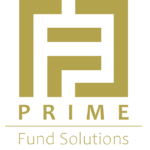Alternative Investment Funds
An AIF is any collective investment undertaking, including a partial fund, which:
a) raises capital from a number of investors in order to invest it in accordance with a certain investment strategy for the benefit of such investors
b) is neither a UCITS, nor any other investment undertaking.
For the determination as an AIF it is irrelevant whether the AIF concerned is an open- or closed-type fund, whether it is established in the form of a contract, trust, corporate form or under any other legal form and what the structure of the alternative investment fund is.
Consequently, the law makes it clear that it is always about an “AIF” when the fund is not structured as a UCITS or another legally regulated investment undertaking. The European Directive on Alternative Investment Fund Managers deals with the regulation of products as well as of managers of investment funds. As in cases of UCITS asset investments must be made on the principle of risk distribution, investment funds are outside the field of application of the Directive regarding UCITS, which only invest in a single asset or in a very small number of assets and for this reason are regarded as alternative investment funds within the meaning of the Directive on Alternative Investment Fund Managers.
An AIF having its seat in Liechtenstein can be established in the form of a contract (“investment fund”), in the form of a trust (“collective trust”), in a corporate form (“investment company”) or in the form of a partnership (“investment limited partnership with one unlimited partner”; “investment limited partnership without unlimited partners”).
Prerequisites for licensing
The type of licensing of an AIF in Liechtenstein may be in the form of authorization or licensing by the FMA Liechtenstein.
The AIF Manager having its seat in Liechtenstein must notify the FMA of the AIF managed by such manager, which needs to be authorized by said authority if he wants to place the shares of the AIF in Liechtenstein:
a) exclusively to professional investors; or
b) to professional investors and private investors and there is no licensing obligation.
The manager of an AIF having its seat in Liechtenstein must file an application to the FMA for the licensing of the AIF managed by him, if he wants to place the shares of the AIF in Liechtenstein to private investors and:
a) it is about an AIF that uses leverage;
b) the protection of investors and of public interest requires licensing; or
c) the investment strategy of the AIF does not correspond to any type of fund defined by the government.
Application and licensing procedure
The application for the issue of a license to the alternative investment fund must be filed before the FMA. The application for licensing must contain in particular:
a) a business plan containing data for the AIF and its seat;
b) the founding documents of the AIF;
c) certificates of the selection of a depository and of an auditor;
d) description of the AIF or of the available information for investors in the AIF;
e) in case of a feeder AIF – the seat of the main AIF.
The FMA must send within three working days after the receipt of the complete application a confirmation for the receipt thereof. Within 20 working days after the receipt of the complete documentation the FMAmust make a decision related to the application. The FMAmay extend the time limit to a maximum of two months.
Authorized Assets
In Liechtenstein the regulation provides for the following:
Managers of AIF applying fully the provisions of this law, in accordance with their license, founding documents and this law may:
a) invest the assets of the AIF in any assets; and
b) manage the assets of the AIF by using the respective investment strategies, techniques and tools.
In order to facilitate the licensing/authorization of the AIF the regulator must make a decision for 4 types of funds:
a) AIF for liquid investments cover all liquid investments having a volume of a minimum 70 % of the net asset value.
b) AIF for non-liquid investments cover non-liquid investments in volume of a minimum of 70 % of the net asset value.
c) A flexible fund is an AIF, which according to its investment policy may combine liquid and non-liquid investments.
d) AIF using leverage are AIF, in which the AIF manager may use leverage exceeding three times the net asset value.

